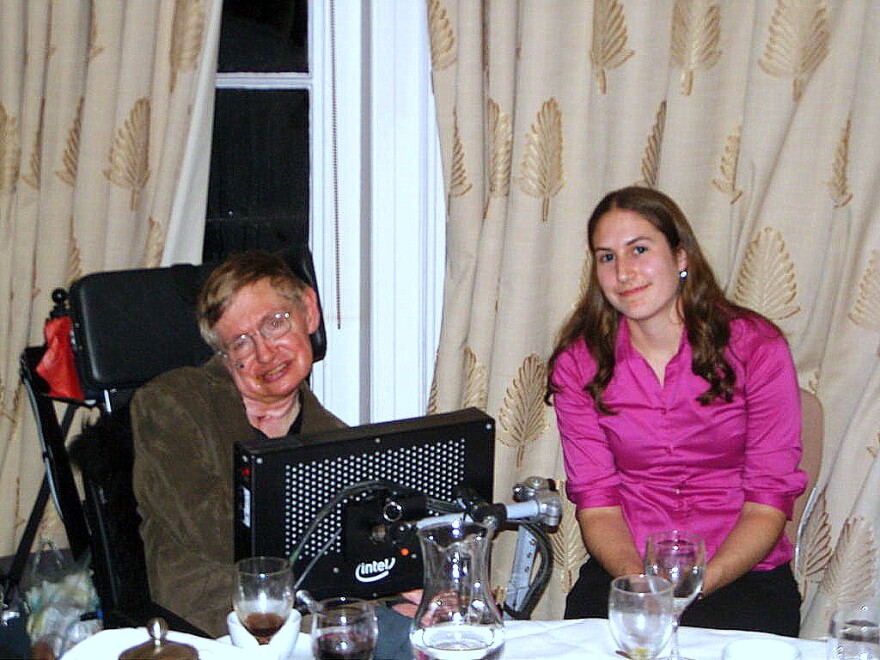Many kids take things apart to figure out how they work. They stare up at the stars and wonder how the universe functions. As a young child, did that too. But she eventually took that curiosity to the next level, and her childhood fascination led to a career in astrophysics.
Mack met Stephen Hawking, who inspired her to become a cosmologist. She also followed in the footsteps of her own grandfather, who had worked on the Apollo 11 mission and attended Caltech.
Mack also sought answers to life鈥檚 biggest questions through religious practice. She spent time in theology school and always hoped to find faith but eventually realized that route was not quite the one for her.
Mack continued on with her study of science, and now is a professor in the where she focuses on understanding the universe from beginning to end. She is currently writing a book exploring theories about how the universe may end. Host Frank Stasio talks with , well-known on Twitter as , about black holes, dark matter and whether aliens exist.
Note: This segment originally aired July 9, 2018.
Interview Highlights
On how the universe probably won鈥檛 end with the big crunch theory:
There are other ways for the universe to end. It doesn鈥檛 have to end by it all collapsing again. If the universe is expanding forever and constantly accelerating in its expansion, which is what looks like will happen, the universe comes to an end in the sense that everything in the universe decays and dies. That鈥檚 called the heat death.
On her search for faith:
I didn鈥檛 have faith per se. I had a lot of trouble believing in anything that I didn鈥檛 have strong evidence for. It comes back to the scientific view point maybe. I didn鈥檛 have religious experiences. I didn鈥檛 have a feeling of connection with the divine. I wanted that feeling of connection 鈥� I found the practice very meaningful, but I never got the faith.
On the challenge of undergrad at California Institute of Technology:
The work was hard. The other students were very talented. One of the things that happens at a place like Caltech is you have to be within the top 10 percent of your class, usually much higher, to get into Caltech. Then once you鈥檙e there, everybody鈥檚 used to being at the top 鈥� I was used to getting straight A鈥檚. At Caltech it was a tough place.

On having Stephen Hawking attend her lecture:
They were like, 鈥測eah, come give a lecture during the cosmology lunch.鈥� So I鈥檓 like, 鈥淥K I guess I can do this. I鈥檓 scared but I will do this.鈥� The reason I was scared is because this is the lunch Stephen Hawking goes to. I knew that there was a possibility he would be there ... Just as I鈥檓 getting ready to show my title slide I hear this beeping as his chair is rolling in.
On her grandfather working with Apollo 11:
He was very involved in Apollo 11 in a really big way. He actually, in some sense, saved the lives of the Apollo 11 astronauts ... At some point he was assigned to do the weather for the Apollo 11 mission, specifically the splashdown phase 鈥� It鈥檚 really important as it comes down through the atmosphere it doesn鈥檛 encounter a big storm 鈥� and so he was in charge of making sure the landing site was OK. It looked fine, but he also had access to secret spy satellites from the Cold War that he knew had better data ... He had that secret clearance and NASA did not 鈥� Turned out there was a huge storm right where the landing site was supposed to be 鈥� It would have killed everyone on impact with the ocean 鈥� And so my grandfather had to go back to NASA and say, 鈥淵ou have to move the landing site. I can not tell you why.鈥�


